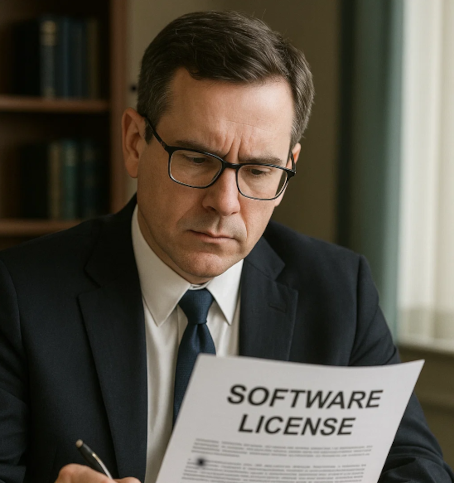
Every in-house counsel will, sooner or later, face the dreaded software audit. Whether it’s Oracle, Microsoft, IBM, or an enforcement group like the BSA or SIIA, the notice comes with implied threats of substantial liability and tight timelines. The stakes are high, the rules are opaque, and a misstep can cost millions.
So how should corporate counsel respond?
Here are the essential strategies that legal departments must embrace—based on lessons learned from actual audit defense cases and leading practitioners in the field.
1. Don’t Go It Alone
Too often, companies attempt to manage audits internally, only calling in outside counsel after serious damage is done. This is especially risky in Oracle audits, where litigation is not just a possibility but a known tactic. In fact, in the Ninth Circuit (where Oracle typically files suit), courts narrowly interpret attorney-client privilege for in-house counsel. If your legal advice also includes business guidance, it may not be protected from discovery.
Solution: Retain experts like Palisade Compliance, whose team includes former Oracle insiders and seasoned professionals with direct experience managing and defending against software audits. Their deep understanding of vendor tactics and licensing strategies gives your organization a significant advantage from day one.
2. Understand What a Software Audit Really Is
A software audit is not just a compliance check—it’s a revenue opportunity for the vendor. Vendors or their agents often pursue expansive interpretations of vague contract terms to inflate alleged under-licensing. Worse, they may use proprietary or undisclosed methodologies that work against the licensee.
Solution: Treat audits as legal disputes from the outset. Review your license agreements carefully. Identify ambiguities and past correspondence that may narrow the scope of vendor claims. Have those agreements ready to turn over to the experts, like Palisade Compliance, They know the nuances of these agreements that you do not recognize.
3. Maintain Control of the Process
Vendors may attempt to bypass legal by contacting IT or procurement directly. Do not allow this. All communication should be funneled through a designated contact, ideally working under legal supervision. Train employees to avoid admissions, especially during calls or email exchanges with auditors.
Solution: Issue a hold directive internally and set a unified company response plan, including vetting what is shared and how.
4. Insist on Confidentiality and Narrow Scope
Before sharing any audit data, confirm that confidentiality terms are in place—not just with the vendor, but also any third-party auditors. Scope creep is real. Vendors often ask for access to more systems or locations than justified by the agreement.
Solution: Limit the scope of the audit to what the contract allows. Reject overbroad requests and renegotiate unreasonable audit scripts.
5. Review Every Word in a Settlement Agreement
In the event of settlement, pay close attention to non-monetary terms. You may be agreeing to future monitoring, software uninstalls, press releases, or onerous reporting requirements that go beyond standard license terms.
Solution: Push back on overreaching terms, especially releases that are conditional or warranties based on audit data accuracy.
Final Thought: Audit Preparedness Is a Governance Issue
Software audits are now part of doing business. In-house legal teams must see them not as one-off crises but as recurring risks to be managed. Companies that prepare proactively—by inventorying assets, reviewing licensing positions, and aligning stakeholders—are better protected. Most importantly, work with experts. Palisade Compliance has defended thousands of Oracle audits and understands the nuances vendors exploit. Your best defense starts with a well-prepared offense—and the right team beside you.
#SoftwareAudit #InHouseCounsel #LegalStrategy #OracleAudit #LicenseCompliance #PalisadeCompliance #SoftwareLicensing #CIO #ITRisk #EnterpriseSoftware #TechLaw #BSA #SIIA